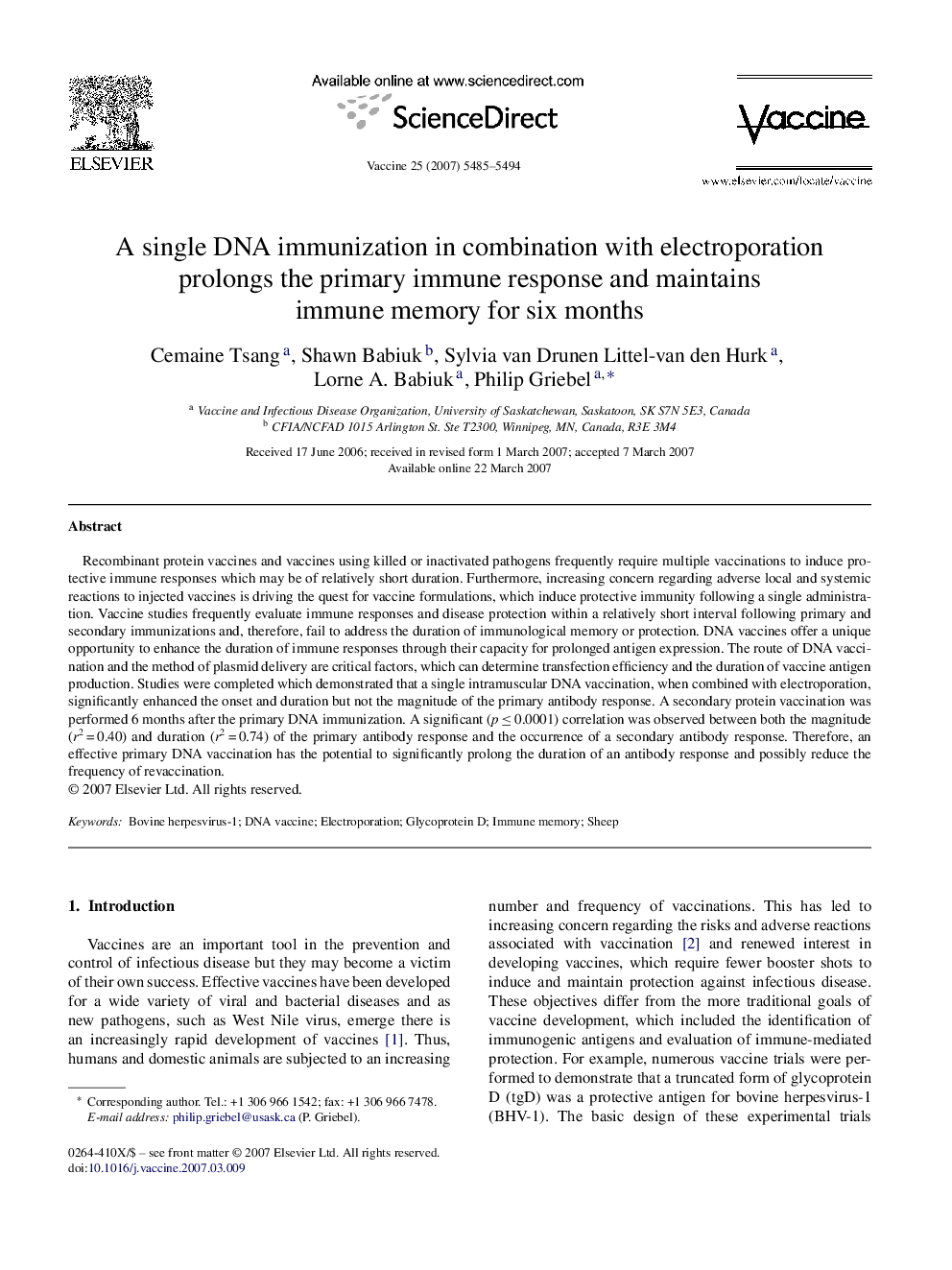| Article ID | Journal | Published Year | Pages | File Type |
|---|---|---|---|---|
| 2409599 | Vaccine | 2007 | 10 Pages |
Recombinant protein vaccines and vaccines using killed or inactivated pathogens frequently require multiple vaccinations to induce protective immune responses which may be of relatively short duration. Furthermore, increasing concern regarding adverse local and systemic reactions to injected vaccines is driving the quest for vaccine formulations, which induce protective immunity following a single administration. Vaccine studies frequently evaluate immune responses and disease protection within a relatively short interval following primary and secondary immunizations and, therefore, fail to address the duration of immunological memory or protection. DNA vaccines offer a unique opportunity to enhance the duration of immune responses through their capacity for prolonged antigen expression. The route of DNA vaccination and the method of plasmid delivery are critical factors, which can determine transfection efficiency and the duration of vaccine antigen production. Studies were completed which demonstrated that a single intramuscular DNA vaccination, when combined with electroporation, significantly enhanced the onset and duration but not the magnitude of the primary antibody response. A secondary protein vaccination was performed 6 months after the primary DNA immunization. A significant (p ≤ 0.0001) correlation was observed between both the magnitude (r2 = 0.40) and duration (r2 = 0.74) of the primary antibody response and the occurrence of a secondary antibody response. Therefore, an effective primary DNA vaccination has the potential to significantly prolong the duration of an antibody response and possibly reduce the frequency of revaccination.
